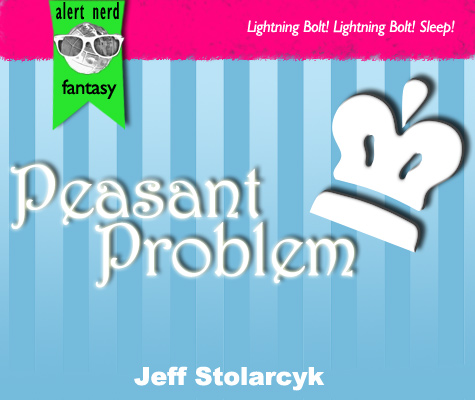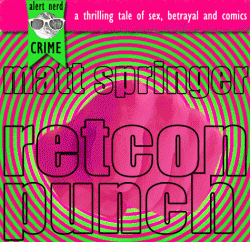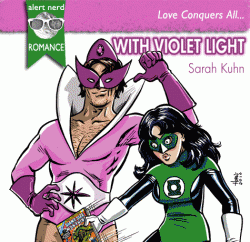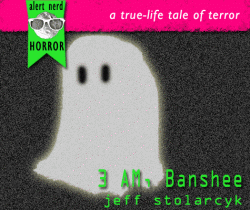In "The End," How I Found Lost

In "The End," How I Found Lost
Jun 01
The final episode of Lost was a profound experience for me.
Maybe it was for you too, or maybe it was a disappointment. Maybe you thought it was kick ass in spots, confusing in others, and were just cheering for Frank Lapidus the whole time anyway, so whatever.Â
You’re probably right. I don’t care. Because I don’t think the final outcome of Lost is really about what we can agree was cool and what wasn’t, and the questions we all had in our heads and our hearts that we were hoping would be answered. In other words, if you watched that and really felt pissed that there wasn’t an adequate explanation of the fertility god statue, you missed the point–or at least, I think you missed the point, but that’s up to you, really. You take what you can carry. You leave behind the rest.*
The last fifteen minutes of Lost are many things, no doubt different for each of us, but one thing I think they were for me is a metaphor for how we are meant to come to terms with the show itself. For six seasons, we have watched and wondered; we have speculated and vented; we have engaged a complicated and frequently convoluted “mythology” and a rich tapestry of characters, both of which occasionally beat us about the face and head (OH JESUS NOT ANOTHER JACK EPISODE WHAT IS IT WITH THIS GUY ANYWAY).Â
At the end, there aren’t a full set of answers. There isn’t even an acknowledgment of many of the questions. The show has dealt with what the show will deal with. It’s about moving on–accepting what you’ve been given (or not) and waking up the next morning. Or something. You take what you can carry. You leave behind the rest.Â
(The only speculation I’ll offer from my personal mental wanderings is that the final scene in the church suggests that what we saw was specifically Jack’s spiritual closure, and not everybody’s; kind of a shame, if true, since all the characters deserve the same fulfillment. But in a sense, from our perspective, they got it; we just perceived it through Jack’s experience.Â
(He was always the man at the head of the action, many times placed in the leadership position of the group; he was a doctor, dedicating his life to the health of others. He had issues with his own father, true, but also needed to know that he had brought all these people he became entangled with to safety and good health, away from the island.Â
(So we see somewhat incongruous things, like Sayid with Shannon instead of Nadia, or Charlie and Claire cradling Aaron; and we miss other things, like Penny and Desmond’s child. Surely some of these details would be more fulfilling for those specific characters than what was shown?Â
(But not to Jack. Jack fought long and hard, up to the very end, to insure the safety of the others with whom he shared the island experience. In his final moments before walking into the light, he knew everyone from that experience was okay. I presume, as long as I’m speculating, that there are similar moments, maybe in similar churches, waiting for all the island’s castaways, eventually.)
At the end of the day, this series was always about the characters as well as the mythology. This last season did explore and resolve some of the mythology issues, but the amount of time devoted to this “sideways” universe made it clear that in the final summation, what would matter most for this show were the characters, and not the many, MANY bits and pieces of plot that floated around them.Â
So if you didn’t get the answers you wanted, so what? Did you enjoy the experience of watching the story unfold, of speculating about what may be going on with the island? Did the episodes themselves satisfy beyond the simple progress on some imagined straight path toward a never-to-come final rundown of why everything was?Â
Does life work that way? Do you think you’re moving through your days toward some last conclusion someplace where every event of your life will be explained and contextualized into a neat and tidy megaplot? I realize the writers have been seemingly asking us all this time to care about the island’s complicated mythology, but as the show concluded, they were gently guiding us down a different path. If you choose to follow or not, that’s up to you. You take what you can carry. You leave behind the rest.Â
In that sense, it reminded me very much of the exceptional Sopranos finale. There was closure to be found; there were plots that ended, characters whose arcs resolved. But in the end, it was as sloppy and unexplored as life itself. What mattered was emphasized and shown; what didn’t matter was ignored. That’s how it goes.Â
That two hours of television, for me, was this amazing spiritual thing that glistens and curves in the memory. It also had some goddamned kick ass stuff in it, like the Jack vs. Locke showdown, and Lapidus getting that plane off the ground, and Desmond uncorking the bottle. Jorge Garcia deserves an Emmy simply for his reaction to Jack dying in the cave. Terry O’Quinn needs one too.Â
My friend Jeff Stolarcyk said of Lost that “any answers that we’ll accept are going to be the ones we discover for ourselves.” That is the true gift of this show, and this final episode. We are being handed an opportunity to reflect upon six years of crazy and amazing storytelling, and then realize how it all came down to people helping people, and learning to move on, together. Take what you can carry. Leave behind the rest.Â
This is a show that has invited us over its six seasons to bring our own questions and ideas to the table, and which at its end gives us one final idea to ponder. You can speculate, analyze, discuss; you can unpack the ways in which the eventual abandonment of the many questions within the mythology was disappointing. In the end, it wasn’t about that. The Beatles had it right: “And in the end, the love you take, is equal to the love you make.”Â
Move on, into the light.Â
* That recurring bit is a shameless swipe from a great Bruce Springsteen song, “Land of Hope and Dreams,” which I think fits this final episode and its message well. It’s what I want to believe about the world and life itself, neatly fit into around eight minutes and change.Â
Posted via web from Pop Geek









